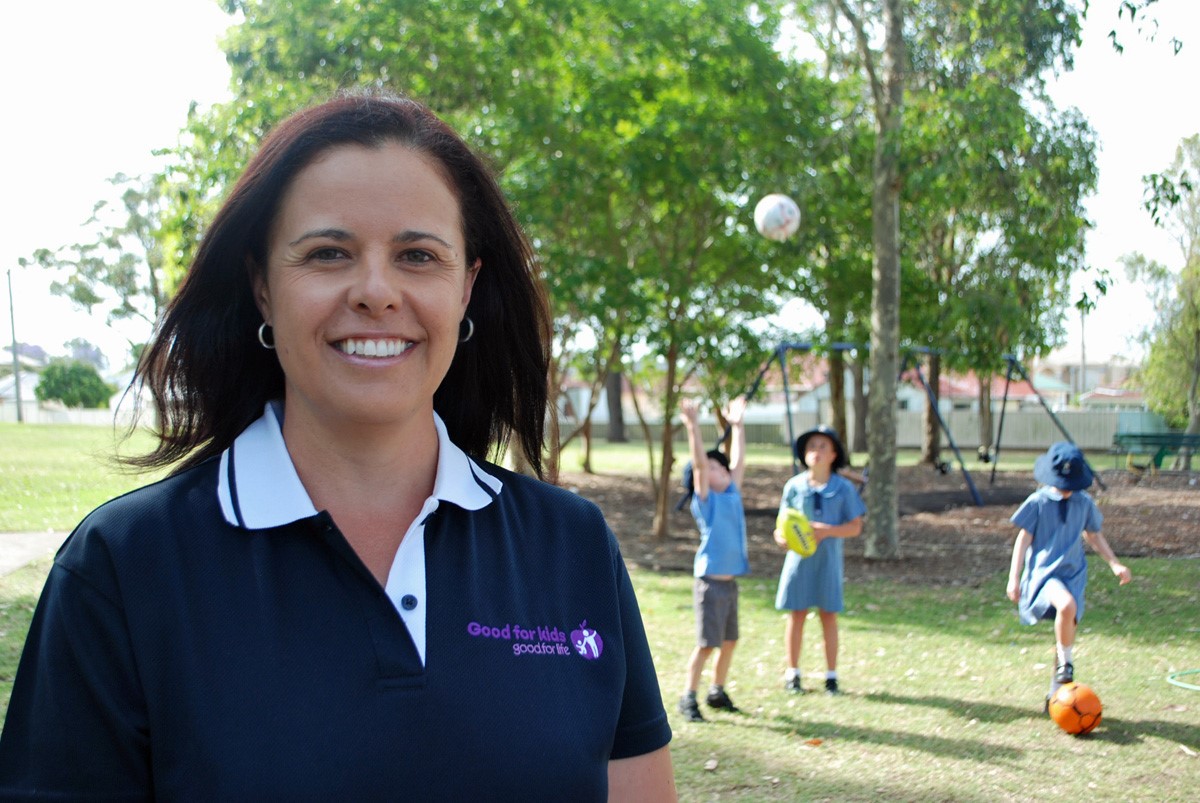Researcher Highlights
Health economies of scale
Dr Nicole Nathan
How can we make positive change on a state-wide or even national scale? Dr Nicole Nathan is working on improving the health of our nation.

When we roll out health programs across multiple institutions and communities, each one with its unique set of challenges, how can we ensure that the positive consequences of all that hard work actually reaches everyone it needs to reach?
Dr Nicole Nathan specialises in implementation science in health policy. Having worked across multiple Hunter New England (HNE) health programs and projects, she knows just how policy workers and researchers can ensure that they don’t fall short on making real and measurable changes within the community.
Like many of us, Nicole was nudged in the direction of her field by a supportive and enthusiastic teacher. Following in her mentor’s footsteps, Nicole originally trained as a PE teacher – but like many teachers, she struggled to find a permanent position close to home. Looking outside of the box, she applied for a position with Hunter New England Population Health, recognising that her expertise in the field of health and fitness would likely make her a suitable candidate.
“Before I started, my idea of health promotion was making pamphlets and doing speeches in schools. Then I started working on a state wide physical activity project, and saw that that’s exactly what health promotion is not!” reveals Nicole. “If you want to make a difference at a population level, you need to be working at scale. That project took me down the path of, 'I need to know how to do this better' – so I did my Masters in Public Health at UON.”
From a statewide issue to a national program
In 2005, the Global Obesity Summit shifted the way public health programs were funded across the state. Prior to the summit, funding was divided between local health districts. The government then realised that for improvement to occur in childhood obesity, significant investment was required. HNE Health put up a tender and were successfully granted the project funds for Australia’s largest childhood obesity prevention program, ‘Good for Kids, Good for Life’.
“The program was whole of community, however I was brought on to manage the school stream component as that was my area of expertise,” explains Nicole. Not long after the project started, she started her PhD in implementation science, working on the Crunch and Sip fruit and veg break program.
“I feel like my whole career had mapped to that point. I started off as a PE teacher, improving health for children - then I developed my research skills, and now I'm doing that same thing but at a wider level.”
When Nicole first made the shift from the classroom to public health research, she missed having that direct impact on the children and communities she worked with. But as she moved forward with her Crunch and Sip project, she began to realise the impact of her research was just as significant – but even wider reaching.
“Even by a conservative estimate, we know there are 100,000 children in the HNE region having a piece of vegetable or fruit every day because of our program. So that for me was the face that I needed.”
“I love it when I drive past a school and they’ve got their Crunch and Sip sign up. I love it because it's just part of school culture now – we’ll go into schools that don’t even know we’re responsible for it all, and they tell us they’ll have to stop for a Crunch and Sip. Parents just expect it now.”
So, what does it take to roll out a successful evidence-based state-wide public health project?
“If you want a school to adopt a policy or program, then you've got to know what the barriers are and then support them to overcome these barriers. “One of the most common barriers for schools is time – teachers ask, ‘how can we possibly make time for this?’ – they’ve already got a crowded curriculum. So our job is to then support teachers overcome such barriers by helping them to embed the policies or programs into their usual practices or routines.
Implementation science asks: when is it necessary to use this ‘bells and whistles’ approach (as Nicole affectionately calls it), and when is it possible to scale back the intervention and still see a significant effect?
“There’s got to be that initial training and consistent support, but sometimes doing that by email or text message can be just as effective – and that’s obviously more scalable than repeatedly driving out to every institution.
“We've got 430 schools in the region - we're a health service and our remit is to provide support to all 430 of those schools.
“What I'm providing in Newcastle needs to be able to be provided to a school in Moree or Boggabilla. We shouldn't be delivering something that can't be scaled - so all of our programs need to keep an eye on that. We need to make sure there's equity and that we're supporting everyone.”
What’s next on the horizon? Nicole has recently received three fellowships: an NHMRC Translating Research Into Practice (TRIP) Fellowship, Hunter New England Clinical Research Fellowship and a Sir Winston Churchill Fellowship, which will aim to assess the effectiveness of a multi-component intervention to support schools implement a mandatory state-wide physical activity policy.
“This is a really exciting opportunity as this will be the first randomised controlled trial to examine the impact of an implementation strategy for a physical activity policy in schools, Nicole says.
The University of Newcastle acknowledges the traditional custodians of the lands within our footprint areas: Awabakal, Darkinjung, Biripai, Worimi, Wonnarua, and Eora Nations. We also pay respect to the wisdom of our Elders past and present.